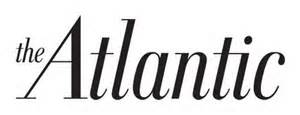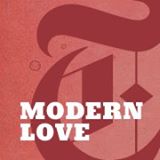|
Publishing is an ever-changing industry. Rules that applied a decade ago are often obsolete, but here's a constant: Successful writers know their audience.
It's straight from Marketing 101, but it's also relevant. Identify your audience, and your sales will improve. As much as we writers want to believe that publishers and editors seek achingly beautiful prose that will become iconic literary treasure, they are first interested in sales. As in, who will buy this book? Why will theyread this article? This is actually a good thing for writers because more sales = more exposure and more money. Writers want publishers and editors to be mercenary, because more exposure and money will create the freedom and fertile space for that literary treasure to develop. It's a cycle, and you can help the process by identifiying your audience at the beginning. Are you writing for cancer survivors? Teenaged girls? Addicts? Football enthusiasts? If you clearly identify your audience, your prose will be revised with that audience in mind. This helps develop a branding strategy, and it helps sell your prose more efficiently. Challenge: Identify three distinct groups who will purchase your book or read your article. Be as specific as possible. (e.g. Instead of "Women," go with "Women between the ages of 35-50 who have traveled to Italy.") Once you have identified these demographics, notice how you revise things like language and tone with your audience in mind. When I teach new and emerging writers, especially those with goals of writing in the first person, this lesson is among the first in the series. It is deceptively simple, and it often leads to an existential awareness (for real) that the best first person writing is not, technically speaking, about you. It is about your reader.
I participated in a workshop led by essayist Philip Lopate, and he noted (I'm paraphrasing) that the trouble with modern memoir is that it typically falls into one of two categories: angry confessional or victim needing to be healed. With that in mind, here is my challenge. Write an essay. Or a blog post. Or a piece of memoir. Basically, get yourself a chunk of material that's all about you. Something meaningful, deep, hilarious, or in-process. Something you love. Print out a hard copy (don't try to do this on the computer screen-it won't work), and circle all the instances you use "I," "Me," and "My" in your prose. Go line by line and circle them all. Then ask yourself if this material is about you or about your reader. Re-write without using "I," "Me," or "My" in your prose and watch how the phrasing comes alive in a multi-dimensional, sensory way. Takeaway: As writers, it's not enough to detail our own experiences. We must make them relevant to our readers. Publishing is a relationship based business. So is writing.
In fact, most things are relationship based. Think about it. You'd much rather opt for a known quantity vs. an unknown quantity, right? A recommendation from a friend trumps an ad on Craigslist. Today's free advice is to spend time cultivating a network of contacts. Or, put another way, make some new friends. I include amateur video of Travis James Humphrey as an example of this. Last year, friends of ours offered use of their vacation home in the Virgin Islands-a luxury we could not otherwise afford. That act of generosity inspired us to meet the local beach bar owners, who then invited Travis to perform. That performance led to one audience member requesting Israel Kamakawiwo'ole's version of "Somewhere Over the Rainbow" in honor of his dead son. Trav's song led to a hush in the crowd, some tears, a sense of collective experience, $20 tip, and a meaningful sunset moment for a grieving father as we all toasted that man's family. As a writer, you never know who will have a story that inspires your poetry. Or who will be best friends with a big time editor. Or who is an expert at operating a microfilm machine. Or who will invite you to supper in New York City with two of the world's best colo-rectal surgeons who have each personally witnessed approximately 7,000 rectums, with an expected career high of 30,000. (True story. I don't know how that information will ever advance my writing, but it has to. At the very least, if I ever need bowel surgery, I have good leads.) Cultivate contacts. Make friends. Listen to people tell their stories. You never know how and when those connections might benefit you or the world you live in. Challenge: Identify a topic of personal interest and locate an expert on that topic. Introduce yourself. The seventh annual Books in Boothbay: Maine's Summer Book Fair will be held on Saturday, July 9, 2011 at Boothbay Railway Village in scenic Boothbay, Maine. Forty authors from around the state will attend to sign their books, discuss their writing, and meet their fans.
(I will be one of them!) The event runs from 12:30 pm to 3:30 pm, with an authors reception to follow. One of the many aspects of my career is the coaching aspect. I work with writers and other artists, emerging and established, and help them find clarity and purpose for their words. I include elements of life coaching in this process, and I boast a client base that is 100% satisfied with the results I help achieve. Part of this coaching process is finding balance, and that involves figuring out what is working and what needs a shot of change. To that end, I offer this tool.  It's a standard balance wheel, and it includes categories that create a well-rounded and satisfying sense of existence. (Personal Growth, Fun & Recreation, Physical Environment, Business/Career, Finances, Health, Family & Friends, and Romance) Print it out. (Don't be all "It's cool, I can just visualize" because you miss the point.) Print it out or draw one on a piece of paper, and then mark your satisfaction levels in each category on a scale of 1-10. This visual rendering of your happiness is a fantastic tool to identify areas in life that are working effectively, as well as areas needing attention. It also helps sort things into a manageable plan when you are ready to make changes. It shows that balance is relative, and if you work to improve one category (say, Finances), it might decrease other categories (say, Family & Friends). Plus, when you draw the circle around the categories, it's illuminating. We would never expect an uneven tire wheel to turn efficiently, but we often expect our lives to be efficient without the exact same sense of balance. I once was part of a photography class with a student who put forward a photo of a shadowy skull and dagger, all backlit and spooky. The critique from the professor stayed with me. She said, "The power in this photograph comes from the image itself and not necessarily from the skill of the photographer."
This is how I feel about song references in literature. I think it is, generally speaking, a lazy way to go. The writer is relying on the skill of another artist, and not necessarily, his or her own mastery of craft. That said, when I teach new writers, I do reference Ray LaMontagne. Specifically, "Jolene." I reference this song when teaching the difference between concrete and abstract language. Abstractions are words like "love, soul, death, happiness, and fear." They are words you cannot taste, touch, see, or smell. Concrete words include "book, coffee cup, paper clip, lilac, and Australian Shepherd." New writers tend to think that abstractions are important, but I maintain that concrete, specific language and references are better. I start my classes with a series of rapid-fire exercises. "When I say love, what do you think of?" I say this and point to each person in the room. The answers inevitably vary: mom, my kids, boyfriend, sex, kittens, Jesus and others. This, I continue, is why writers need control of their language. Because do you really want to write a word like love and have associations that range from kittens to Jesus? For instance, Ray LaMontagne's "Jolene." It is the single best expression of desperation that never uses the word "desperate." The takeaway: Don't rely on song lyrics in prose, and concrete expression is more effective than abstract. When I worked for Maine Writers & Publishers Alliance, I was bombarded every day with questions. How to get published, how to get an agent, the benefits and hazards of self-publishing, and many other points of information. I did my best to answer with compassion and tact, but the reality was that many (most?) of the folks seeking information did not want my advice.
My advice was always this. 1) Write something good. (With thanks and credit to my writing inspiration, Bill Roorbach. Please click the link and memorize every word.) 2) Set the writing aside and start researching. Look up every book that is in any way similar to your idea, and note the following: title, author, publisher, date. Then flip to the thank you section and note any editorial or literary agent acknowledgements. If you say (with a dramatic flourish) "there's nothing out there like my book," this is very, very bad. It is bad because really? There are no nonfiction/fiction/poetry/memoir books out there? If you can't identify a list of competing titles, how do you expect an agent to sell your book? On what basis would an editor buy it? As an author with zero sales history, you need to present a well-researched pitch. 3) Once you have your list of competing titles, read them. Read them for craft. Pay attention to how the author created the book and note how you might craft yours better. 4) Take your piece of good writing, and improve it. This goes for everything: titles (you should see trends in your list of titles), content, structure, and style. Good writers are good readers. Learn from your writer-peers. Get others to give you honest feedback, ideally people in your targeted reading demographic. 5) Use the information compiled from your list of competing titles to create a short list of editors and agents to contact. You could just send your work blindly from a random directory, but think about it from the professional's perspective: which is the more compelling argument? "Based on your interest in [insert titles and authors], you may be interested in my project. Here is how it differs/is similar in a way that would appeal to the same readership market. May I send it to you for consideration?" Or the other, "All my friends say this should be published." In other words, writing is work. Treat it as such. Be professional, create a good product, know the market, network, cultivate relationships, and realize that it takes time to build a business. Inspiration is for amateurs. |
About Shonna.
As a writer living in my home state of Maine, I sling words for cash, compassion, or glory. I also teach, tell groups how to improve systems, and offer development consultation. I also wear eyeglasses. Generally, big ones. Archives
April 2016
|

 RSS Feed
RSS Feed



